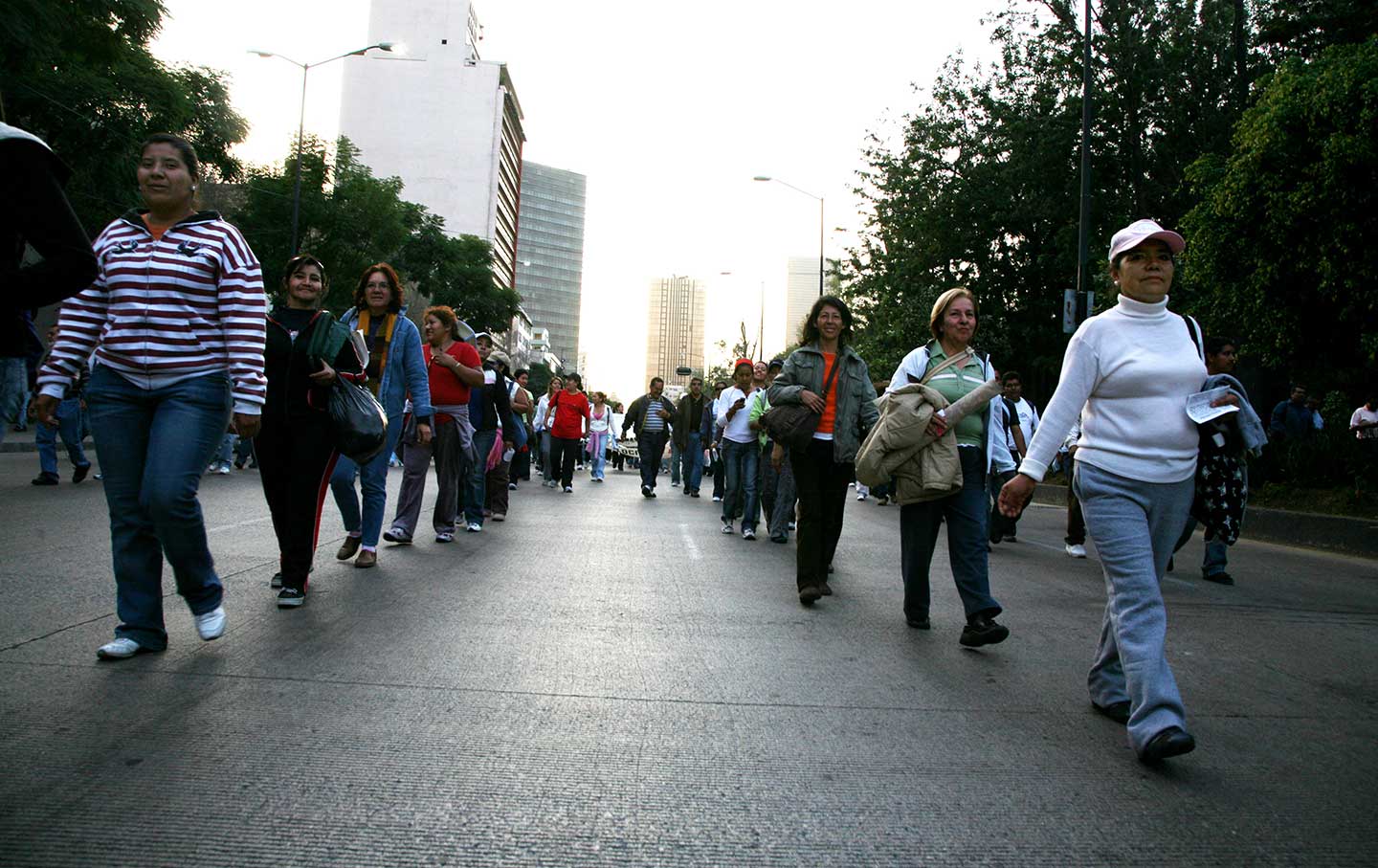Mexico’s Striking Teachers Stand Firm Against State Repression
The government refuses to negotiate, heightening the danger of further bloody confrontation.

Teachers marching against education reform in Mexico City. (David Bacon)
Oaxaca—Since the killing of 11 demonstrators at a street blockade in the Oaxacan town of Nochixtlán on June 19, Mexico has been in an uproar over the use of force against teachers resisting corporate education reform. As the Mexican school year is starting, teachers and supporters in four states have refused to return to classes until there is a negotiated agreement to change the government’s program, and until the perpetrators of the Nochixtlán massacre are held responsible.
The government says it will not negotiate, and Mexico’s corporate leaders are demanding that the government use force to suppress the teachers and reopen the schools. The danger of further bloody confrontation is greater than ever.
The resisting teachers are concentrated in a highly organized network, the National Coordination of Education Workers (CNTE), within the National Union of Education Workers (SNTE), the largest union in Latin America. The CNTE now controls the union in four states: Oaxaca, Guerrero, Chiapas, and Michoacán. In other states, especially Mexico City, it has a large base of support. Teachers in assemblies in those four states voted on August 18 not to start classes on the 22. As of August 23, the government was claiming that over 90 percent of schools had opened. The CNTE says that over half of the schools in Oaxaca and Chiapas remain closed. Adelfo Gómez Alvarez, of the Chiapas teachers’ union, told the Mexico City daily La Jornada that “there were strikes and demonstrations in 28 states, including in Mexico City itself.”
Mexican President Enrique Peña Nieto declared: “There will be no more dialogue if we don’t guarantee beforehand that children can receive an education in their classrooms, which today are closed. First education, then dialogue.” Enrique Enriquez Ibarra, general secretary of Sección 9, Mexico City’s teachers union, responded that for a year teachers had tried negotiating with the government while continuing to stay in their classrooms, but the government didn’t budge. “Today we no longer believe in classes first and then dialogue. The teachers strike will continue,” he warned.
Mexican business interests began proposing changes to the country’s education system over a decade ago, as part of a series of economic reforms that have privatized much of the country’s economy and rolled back rights and protections that workers and farmers won decades ago. Supported by education reform groups in the United States and by the US Agency for International Development, these corporate reforms concentrate on standardized testing for students, and especially teachers. Testing is then used to eliminate educators’ job security and punish militant resistance.
“The real goal is privatizing education,” said Tranquilino Lavariega, a classroom teacher and general secretary of his union chapter in Santa Cruz Ocotlán, in Oaxaca. “These corporations see education as a business. And because our union has been part of the opposition to their growing power in Mexico’s Striking Teachers Stand Firm Against State Repression | The Nation:

Memorial to the disappeared students of Ayotzinapa in the teachers’ plantón in Oaxaca.(David Bacon)
